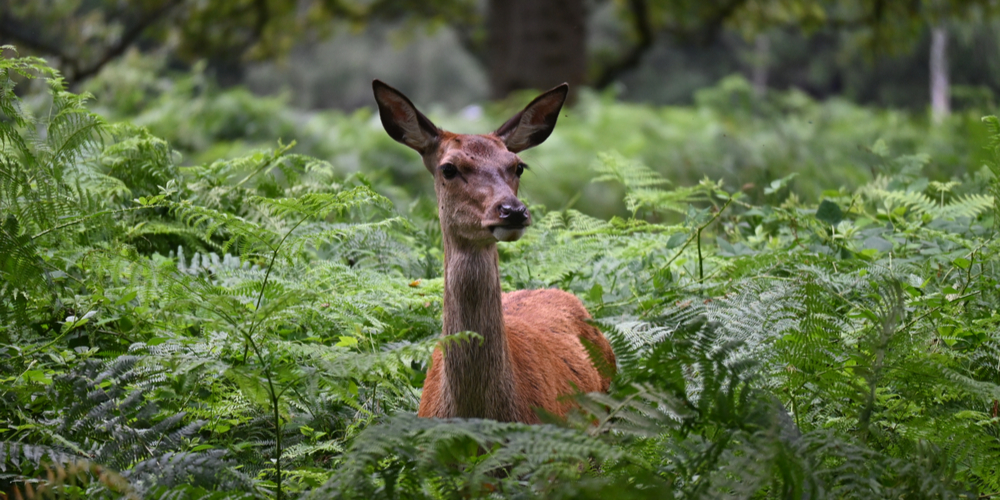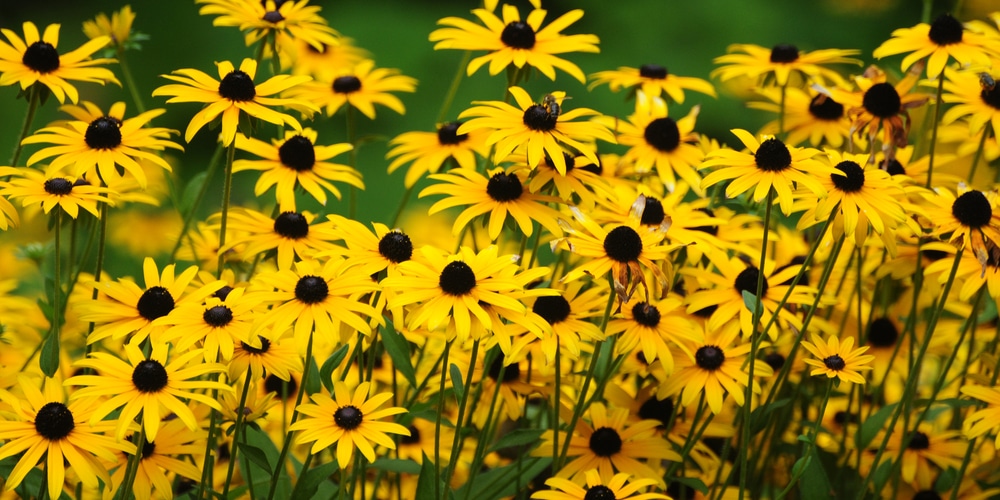Having a colorful garden is every homeowner’s dream. This explains why many people strive to add new garden flowers every planting season to ensure that when it’s time for colorful blooms, their gardens have some showy blossoms to brag of.
However, there are times when plant predators like deer, rodents, pests, and rabbits can attack your plants and destroy them completely, leaving your garden less appealing. In this regard, are black-eyed Susans deer resistant?
If you are planning to plant black-eyed Susans in your garden and you fear that deer might attack them, read on to find out more about black-eyed Susans and whether deer feast on them.
Quick Answer:
Typically, deer do not feel comfortable near the hairy stems and flowers of black-eyed Susan because the hair bothers them, particularly when trying to feed. Black-eyed Susans also protect other plants planted in proximity from being attacked by deer.
Do deer feed on black-eyed Susans
Black-eyed Susans are beautiful cut flowers that have the potential to add wonderment to your garden in late summer when most of the other annuals and perennials have dropped flowers or matured into fruits and seeds.
Most gardeners love black-eyed Susans for their beautiful large yellow-petalled blooms with dark black centers.
There are very high chances of seeing deer in your flower garden at the time when black-eyed Susans are blooming. But this does not necessarily mean that the deer will feed on black-eyed Susans.
Well, the main reason you might find deer near your garden is that they seek to feed on seeds and fruits produced by other flowers in your garden that bloomed earlier.
Black-eyed Susans have Hairy stems and foliage, which keeps deer away. Additionally, the flower’s black eye has a lot of hairy anthers holding pollen grains, and those anthers help keep deer away.
Typically, deer do not feel comfortable near the hairy stems and flowers of black-eyed Susan because the hair bothers them, particularly when trying to feed. The black-eyed Susans also protect other plants planted in proximity from being attacked by deer.
Other animals that black-eyed Susans resist
Apart from deer, there are other rodents and small animals that cannot feed on black-eyed Susans. They include
1. Rabbits:
Black-eyed Susans have bristly leaves and fuzzy flower heads and stems. Naturally, rabbits do not prefer feeding on plants that have fuzzy features.
Therefore, they are not going to eat black-eyed Susans on most occasions, especially when there is plenty of food. However, black-eyed Susans are not poisonous or harmful to rabbits, and that is why some rabbits tend to eat black-eyed Susans when there are minimal palatable food sources.
2. Racoons
Raccoons like visiting flowering plants to feed on their seeds, fruits, and other small insects. However, they may not attack black-eyed susans because of the nature of these unique flowering plants. Their fuzzy nature protects them from being fed on by the stubborn raccoons.
Why does black-eyed Susan attract?
Black-eyed Susan is obviously a favorite for some insects and birds because of the beautiful landscaping flowers. Here are some of the common insects and birds that enjoy feeding on black-eyed Susans.
- Bees: Bees are common insects on brightly flowered plants. For black-eyed Susans, their yellow color attracts bees come to feed on their nectar and pollen grains. The flower has many anthers at the head, which produce a lot of pollen grains that serve bees with energy and proteins for growth. Bees also help in the cross-pollination of black-eyed Susans.
- Butterflies: Butterflies visit black-eyed Susans for similar reasons as those of bees. Butterflies can easily see the bright color of black-eyed Susans while flying and land on them to feed on pollen grains. They also help cross-pollination by inadvertently carrying pollen grains from one flower to another.
- Hummingbirds: Hummingbirds are naturally nectar-feeding birds that will regularly visit flowering plants to feed. They feed on the nectar produced by black-eyed Susans and also help in pollinating the flower.
- Moth: They are small butterfly-like insects that you will likely find on black-eyed Susans. They feed on nectar and the numerous pollen produced by the flower.
- Aphids: These are the most notorious insects you will likely have to deal with in your back-eyed Susans flower garden. They are dangerous pests attracted to fuzzy flower leaves, petals, and stalks. If not controlled, aphids can eat up the entire petals and leaves of your flowers, leaving the garden entirely unpleasant and unappealing.
Are black-eyed Susans deer resistant?: Conclusion
Black-eyed Susans are hardy, easy-to-plant flowers that you can consider adding to your garden. They are late-season bloomers when most other beautiful flowers have already dropped their blossoms and produced fruits and seeds.
The fascinating fact about black-eyed Susans is that they are resistant to drought, deer, rabbits, and raccoons.


